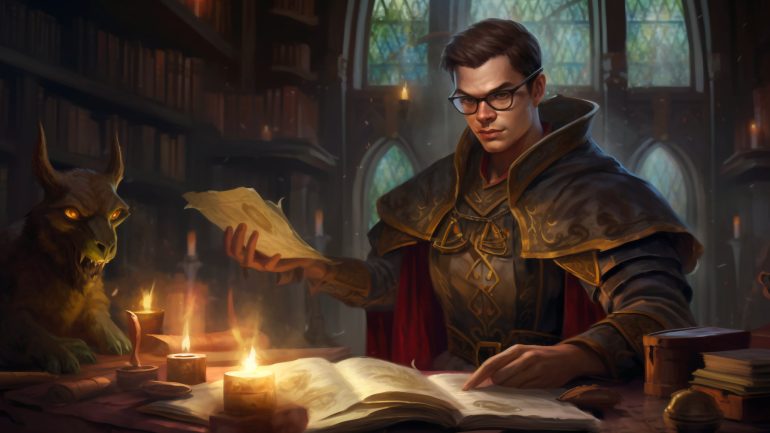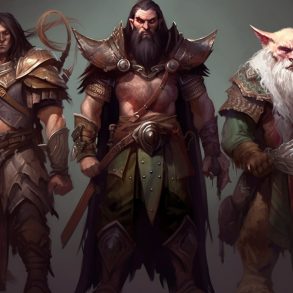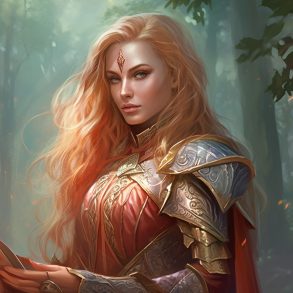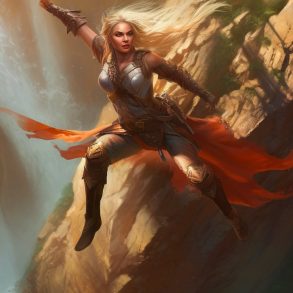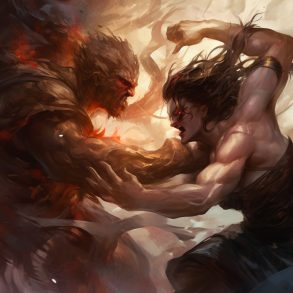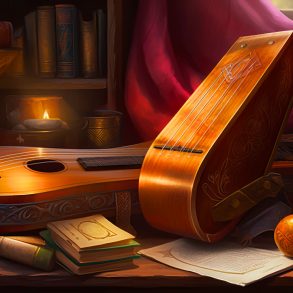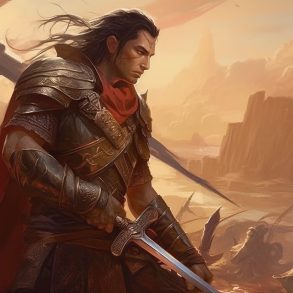Every game needs a Dungeon Master (DM)! And if your friends aren’t up for it, typically that means you end up in that spot, unless you volunteered in which case: good for you! But it’s always daunting to start, and I know I was a little anxious starting my first campaign (I have two of those, but they’re far enough apart and different enough that I count them separately), but once you actually get into it, things go smoother and smoother until you run a campaign where just about everyone comes away ready for the next session until suddenly years have passed and you find yourself resolving an incredible plotline with everyone asking about your next campaign. The problem is getting there.
Before I actually guide you on how to be a Dungeon Master, I must add a disclaimer: These are not definitive. Every DM is different and so is every table. If these tips aren’t working for you, then play around. As always these articles are to help you learn the ropes and shouldn’t be used as a way to say what does and doesn’t work. A common misconception is that you must copy the good DMs exactly, which is what the Matt Mercer Effect (copying Matt Mercer exactly), and this can ruin games very quickly if done poorly. And with that out of the way, let’s dive in!
Learn the basic rules
The first of many steps to DMing is to familiarize yourself with the basic rules. It’s really hard to play a game you don’t understand, so play around. Make a town, some characters, a dungeon, an encounter, monsters, magic items, anything! And you don’t have to wait for DnD night to actually figure some of this out. In fact, doing this before DnD night can give you ideas for the campaign (little more on that in a bit)! But getting to know the rules can help you to understand how the game plays and flows. And if you’re lost, we have an extensive selection of guides for new players and DMs alike!
Craft a campaign
Next step is to find what rules you like, and use that to guide the creation of your first campaign (or next/current if you’ve already DMed). If you like combat, then you should have a lot of those planned out, for roleplay set up some intrigue, have more encounters focused on more complicated goals such as infiltration, or convincing people that someone the players know is innocent, and if you really like exploration, add in various locations that are visible from anywhere providing landmarks along the way. And if you like homebrew, find a homebrew gimmick, and build the first adventure off that, then see if you like that gimmick and if you don’t, find a new one and just keep going!
By now, you should be just about ready to start a campaign for you and your party, which is great because it’s most important to discuss your role in the game as the DM now more than ever. Your role is as an interface between the players and the world. If someone picks up a rock, you determine if it’s possible given their physique and the rock’s size and if they need to make a Strength (Athletics) check to muster the strength to move it, and if they have advantage due to how they wish to move it. You are every NPC the party sees (outside of assistants), you are the mountains in the distance, every town, city, tree, castle, and dungeon. Your goal is to help the players tell a compelling story as DnD is after all a storytelling medium (just like any other RPG), challenging the adventurers, but not trying to just kill them, or make them fail. You want your players to succeed, kick butt, hang on the edge of their seats, then exhale sighs of relief or go berserk over the close calls that almost ended in disaster with their hearts pounding out of their chests. You never want to do something unfair and uncalled for if you don’t have a plan for it.
Monitor the game
Now that you know how to start and what you actually do, you should be ready to run a session. And this last tip pertains to during and after the games: Take note of what’s going on in your campaign. Not just what your players are doing and enjoying, but also how you’re enjoying the campaign, and how your style is developing. You want to know what your players like so you can give them more of what they want, and help them enjoy the game more, as without players, you have no game to run. You want to know what you like because if you lose interest in the game, then the game suffers and the other players (yes, you’re still a player, you get all the NPCs to play) feel it and lose interest as well. And lastly, you want to know how your style is developing so you can really play to your strengths and really blow your campaign out of the water, giving your favorite DMs a run for their money.
Continuously improve
Now, there’s only one more tip (or really set of tips) for me to give, but hold onto your spellbooks, because this is the biggest and most important one: Study, Practice, Learn, Grow, Adapt, and Listen. These tips should improve your skills incredibly. And let’s tackle these one by one:
Study: Study books, DMs, and guides for inspiration, ideas and clarification to find more flexibility. Even study your favorite stories and games to see what turns you want to try taking.
Practice: Run campaigns, design stories, imagine worlds (or dragons?), describe scenes, create monsters, simplify and optimize your ruleset to be what you want, until you find what works best, giving you and your table the perfect balance between speed and quality.
Learn: Make mistakes and learn how to resolve them, using the lessons they bring to your advantage.
Grow: Expand your knowledge of various methods and styles, trying something new once you’re comfortable with what you’re doing.
Adapt: Learn to improvise on the fly, and follow every curveball your players throw you (and they will throw you curveballs. I can’t even count mine) to help your worlds feel real and like each choice has weight and meaning. But also learn to use your real life skills in-game, such as art for drawing maps and character tokens, or programming for making a program that makes your job so much easier and faster!
Listen: Listen to your players and how they feel. Not just what they tell you, but roll some IRL Wisdom (Insight) checks to understand how certain things are going over and what you might be able to do to improve and change for the better.
My personal experience DMing
Beyond that, all I have to say is don’t be afraid of failure. I personally have had my first campaign (3.5E) not even finish session 1, though I had some cool ideas to start with. It still hurt (especially since I was DMing for family), and turned me off running games until only over a year ago when I suddenly came across DnD 5E content and started going crazy over it once again, eventually finding a group and some now good friends that I have shared a few short and failed campaigns with, but one in particular I named: Castaway, that started as an island based one-shot, turned into a full blown campaign that made everybody laugh, cry, burst with excitement, and hold dear to our hearts the memories we created. And now, three of those first friends are still playing with me to this very day in the sequel to castaway.
I’m actually writing this after a session where something I tried really started to pay off, and recalling these memories is bringing tears to my eyes. If I let that first attempt shoot me down for DMing, I would probably be struggling with some emotional problems and not having any real creative outlet. My life has taken on an incredible light and color, and I love DMing thanks to this game, even if I do like the idea of being a player occasionally. So if you’re unsure whether to start DMing, don’t worry. All the good DMs have hit some roadblocks. One of my players (who I taught to DM) is actually running Curse of Strahd, and doing a fantastic job. I do still give him pointers here and there, but running a module really helped him to learn as well after his first campaign fell a little short. I love this game, and want you to take courage and see for yourself why it’s so popular.
You don’t even need to pay to get started. With enough content online with the System Reference Document and sites like wikidot.com filled with homebrew (including some of mine!), you can have incredible campaigns without a single handbook in sight. We even have some tools and resources to get you started! So now, pick up your digital dice, put up your virtual screen and unfurl your Virtual Tabletop, because now it’s your turn to roll.
